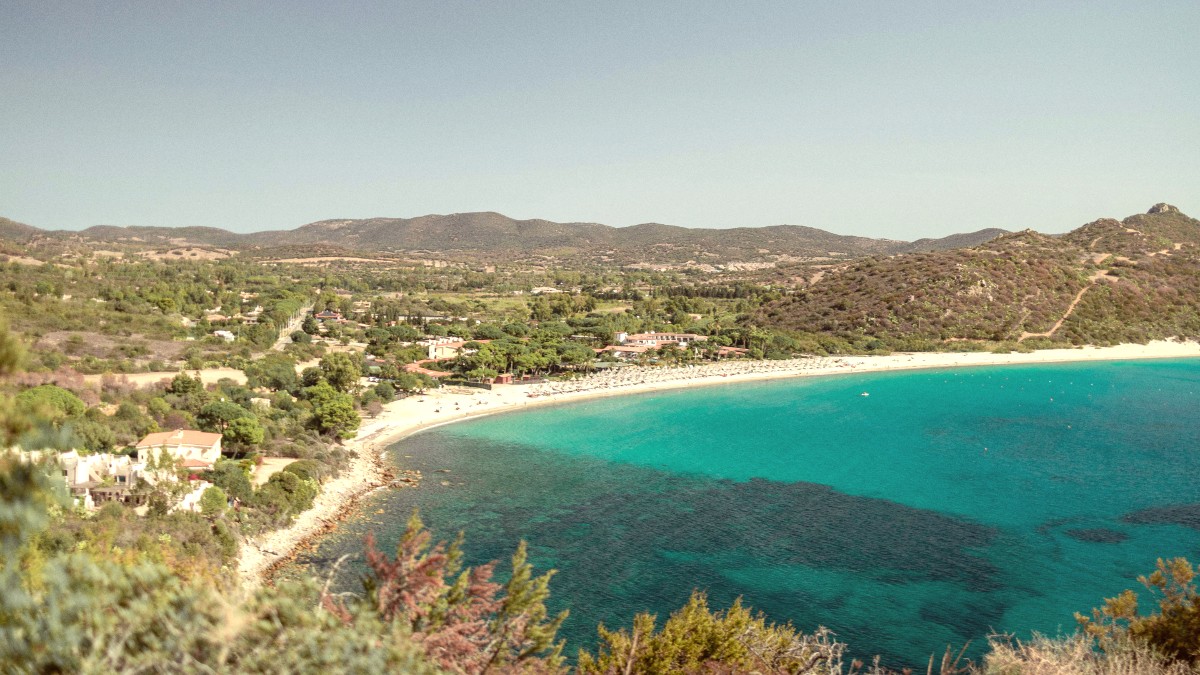
Sardinia, Italy
Temperatures are pleasant during spring and autumn, offering comfortable conditions for exploration. Crowds are fewer than in the high season, leading to a relaxed experience. Prices for accommodation and flights are generally lower. This period is good for a mix of activities: beach time, sightseeing, and outdoor activities like hiking or cycling. The sea becomes warm for swimming from late May or early June and remains comfortable through September.
High season (July-August) brings the hottest weather, ideal for swimming and sunbathing. All attractions, restaurants, and services operate fully. The atmosphere is lively. However, beaches and popular attractions are crowded. Accommodation and flight prices are at their highest. The intense summer heat means hydration and shade are important.
The low season offers the fewest tourists, a quieter, more authentic local experience. Prices are at their lowest for accommodation and flights. This is a good time for cultural exploration without the crowds, connecting with the city's history and local life.
Cooler weather and a higher chance of rain limit outdoor activities. Many seasonal businesses, including some restaurants, hotels, and tour operators, will be closed. Public transportation to some remote areas might have limited schedules.
June to September
Enjoy the most comfortable sea temperatures and reliable sunny weather.
Ideal conditions for all water activities.
April-May, Sep-Oct
Explore the Old Town and other sites comfortably on foot.
Experience attractions with more tranquility.
April, May, October
Optimal for outdoor adventures and scenic trails.
Enjoy the natural beauty without intense heat.
Italy is part of the Schengen Area, a zone of 27 European countries with no internal border control. Citizens of many non-EU/Schengen countries may need a Schengen "C" type visa for stays up to 90 days within any 180-day period. This visa covers tourism or business. Application happens at the Italian Embassy or Consulate.
Citizens from countries like the United States, Canada, Australia, New Zealand, the United Kingdom, Japan, and South Korea do not need a visa for stays up to 90 days. Entry is possible with just a valid passport.
Valid for 3 months beyond departure, issued within 10 years.
A return flight ticket or departure proof.
Evidence of enough money for your stay.
Highly Recommended, mandatory for Schengen visa applicants.
Pre-travel authorization for visa-exempt travelers.
Prices vary significantly based on travel style, season, and spending choices. Italy's official currency is the Euro (€, EUR).
ATMs ("Bancomat") are widely available, offering good exchange rates. Visa and Mastercard are accepted in most hotels, larger restaurants, and shops. Carry some cash for smaller purchases or street food.
Estimates for accommodation, meals, basic transportation, and some activities. Prices subject to seasonal variations.
Strategies for managing your budget during your visit:
Italy is a developed country with modern healthcare and a low crime rate. Local specifics help.
Alghero is a safe city with a low crime rate. Petty crime, like pickpocketing, can occur in crowded spots (markets, public transport) during peak season. Vigilance with belongings is advised. Keep wallets in front pockets, use money belts, and avoid leaving bags unattended.
Standard precautions apply during nightlife. Avoid walking alone in poorly lit or unfamiliar areas late at night. Stay aware of your surroundings. The Old Town and Lido areas are safe, well-lit, and often busy with people, even in the evenings.
Risk higher in hot, dry summer months, especially in rural areas. Pay attention to local advisories.
Rare, but heavy rainfall in autumn or winter can cause localized flooding.
Common in summer. Stay hydrated and seek shade to avoid heat-related illness.
Tap water in Alghero is safe and potable. Food hygiene standards generally ensure safe food preparation.
No specific vaccinations for entry. Routine vaccinations should be current. Consult a doctor before travel.
General Emergency: 112 (covers ambulance, police, fire, carabinieri).
The main public hospital is Ospedale Civile di Alghero. Local pharmacies (Farmacia) offer advice and non-prescription medication.
A comprehensive travel insurance policy is strongly recommended for all travelers. Keep copies of your passport and visa (if applicable) separate from the originals.
Doctor visits, hospital stays, emergency evacuation. Consider SafetyWing or Insubuy.
Unforeseen events forcing trip cancellation or early return.
Coverage for your belongings.
Always remember the universal emergency number: 112.
Compile a list of important contacts, including family, your embassy/consulate in Italy (mostly in Rome), and medical contacts.
If your passport is lost or stolen, report it immediately to local police (Polizia di Stato or Carabinieri) for a report. Contact your country's embassy or consulate for assistance.
Write down the 112 emergency number and your accommodation address on a small card to carry with you.
The universal European emergency number is 112, connecting to police, ambulance, and fire.
Main hospital is Ospedale Civile di Alghero. Pharmacies (Farmacia) provide advice and non-prescription medications.
Access public healthcare with a valid European Health Insurance Card (EHIC).
Always consult your doctor 4-6 weeks before your trip for personalized health recommendations. Italy generally has good hygiene standards.
Keep copies of essential documents separate from originals. Consider security items like a money belt. For travel insurance, World Nomads and SafetyWing are options.
Money belt or travel security belt with hidden pocket; small padlock for hostel lockers; RFID-blocking wallet for cards.
Portable chargers for devices, especially with high photo/map use. Consider eSIM for data plans from Airalo.
Cloud storage services for photos and documents against loss or theft.